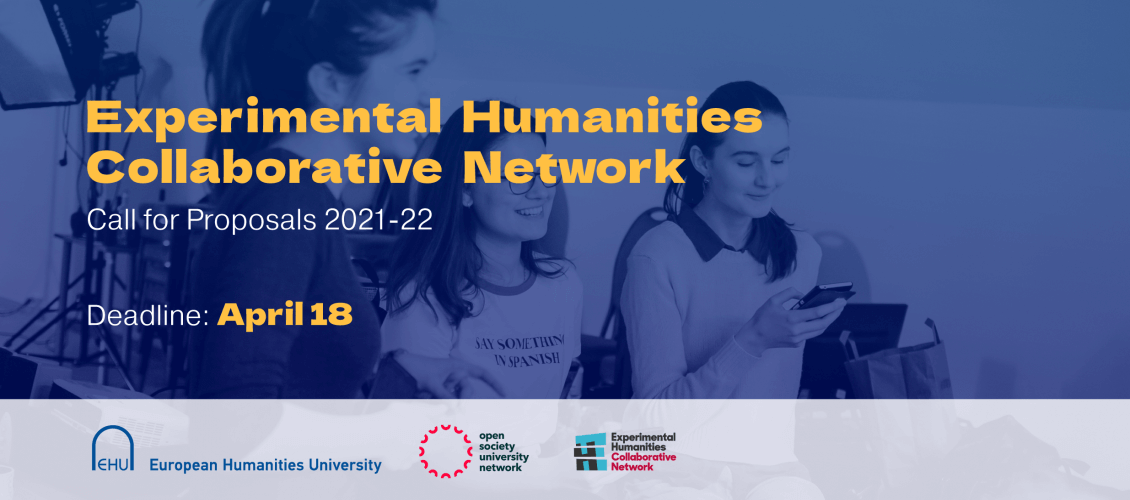Rethinking the humanities in the light of changing technologies, our increasingly connected planet, the ongoing ecological crisis, and the need to create more inclusive institutions.
The Experimental Humanities Collaborative Network promotes projects that encourage the following:
- Critical reflection on the intersection of science, technology, media, art, and the humanities in response to the question: how does technology mediate what it means to be human?
- Hands-on and experiential learning: learning by doing, building, collaborating (between students, faculty, and/or staff), and experimenting;
- Critical, scholarly, and/or artistic work that crosses traditional disciplinary boundaries, especially between disciplines concerned with sciences & technology and disciplines concerned with the arts & humanities;
- Critical, scholarly, and/or artistic work that strives to make an impact on communities beyond the academy and that strives to promote a more equitable and just world;
- The creation of archives, pedagogical resources, research projects, and artworks that can be used and studied by partners across the EHCN;
- Projects that correspond to three themes for 2021-2022
– Humans and the Environment
– The Cultural Politics of Naming
– Reclaiming the Narrative
Types of Grants and Eligibility
COMMUNITY-FACING EVENTS (up to $2,000)
Community-facing events are defined as events at each site centered on media, technology, and the humanities, tailored to the opportunities and circumstances at that locale and meaningfully involving students. These may include presentations by EH-related clusters, courses, and projects underway; film screenings, art exhibitions, and technical demonstrations; relevant speakers, exhibitions, or performances open to the public; and more.
Eligibility: European Humanities University faculty/staff/students.
SKILLS-BASED WORKSHOPS (up to $1,500)
Skills-based workshops are defined as practice-rich modules paired with curriculum development, collaborative research, and/or community-engaged projects. These might include workshops like DIY smartphone screen repair, Wikipedia editing in English or other languages, building websites, podcasting and sound editing, developing inclusive or interdisciplinary syllabi, creating digital and analog maps, writing interactive narratives, building virtual and augmented reality experiences, taking oral histories, and more. Workshops may be online or engaged in-person.
Eligibility: European Humanities University faculty/staff/students.
STUDENT RESEARCH AND PROFESSIONAL OPPORTUNITIES (up to $3,000)
This funding is available to students to participate in EHCN partner projects and initiatives virtually and in person, with skills-building training. This may include: study abroad funds to attend another Network institution with EH courses and projects for a term or a year;
summer or winter research/project employment at the student’s home institution or another Network institution; term-time employment with EH-related programs as course tutors, skills-building workshop assistants and leaders, and research or community project.
Eligibility: European Humanities University students.
Examples of previously realized Experimental Humanities projects at the EHU are skills-based [Podcasting Workshop with Radio Plato, a community-facing Webinar “Political Concord or Digital Divide? Repertoires of Civic Activism in 2020 Belarus” or a student-led podcasting initiative TECHNODEMIA.
EHU faculty, staff and students are encouraged to submit their proposals before April 18, 2022 through this application form.
- NB! The informational meeting for prospective applicants is scheduled April 13, 3pm, please register via the link for participation.
